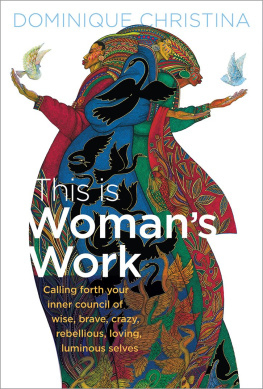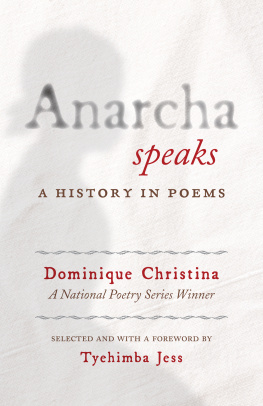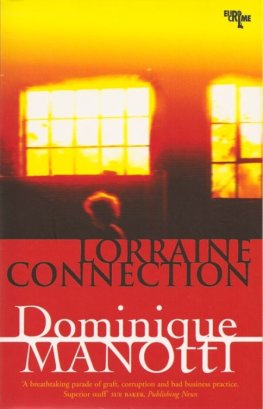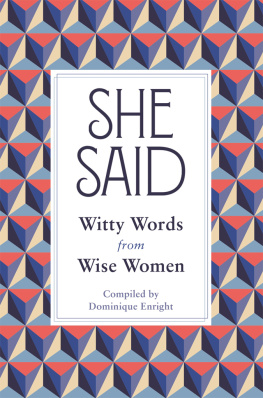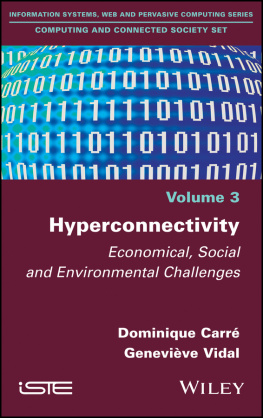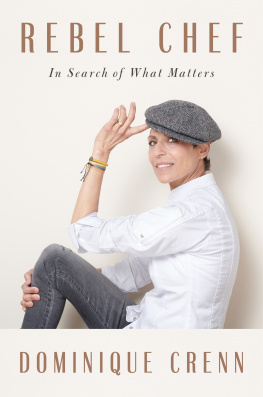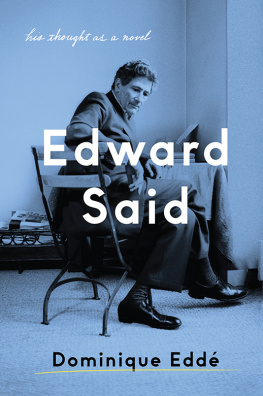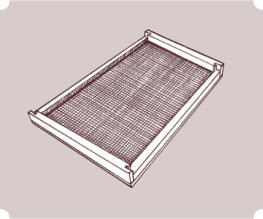
Dedicated to my mother, Jacquelyn Benton, who is the widest example of woman I have ever known.
Contents
an introduction
Our Unclaimed Hallelujahs
Why is it important for women to define themselves? While it is important for everybody, everywhere, to do that work, for me, there is an urgency for women. When you have inherited a construct that names, describes, and practices out an ideology that women are somehow less important, less necessary, then the work of defining yourself carries with it a kind of furyor Fury.
In Greek mythology, the Furies were three women born from the blood of Uranus, the god of sky, when his son Cronus wounded him in battle. In other words, the blood of a wounded warrior gave rise to these fiery women. The metaphor for me is luminous. In a patriarchal context (and we are living in a patriarchal context), the machinery that often drives politics oppressive to women is borne out of a wounded warrior motif and the inheritance of war that passes between father and son. I have long believed that if men had not been conditioned to be conquerors, then women would not need to be a regarded as a designated underclass. To that end, one might argue that, on some level, in order for women to have authorship of themselves, they often travel through the fire, through the bloody constructs that have been built by wounded warriors.
The Furies were imagined as hags, storm-bearers, replete with serpents for hair and bat wings. They are often written as monstrous and venomous. But what the Furies were catalyzed by was a profound sense of justice. The Furies meted out punishment to those who had committed wrong swiftly and often severely. They were unapologetic about tormenting a tormentor. The murderer was punished, the destroyer of family was punished, and the one who pillaged and plundered was punished for causing so much wounding. They were strong women insisting on justice and operating in the full utility of their magic. They showed up big and were unapologetic about seeking balance when wrong had been done.
The Furies also, and perhaps more importantly, represent the ways in which the nature of goddesses can be so riotously misrepresented and why being a goddess/woman requires us to author ourselves. The Furies show us Woman, in all of her complicated and necessary forms.
As a child attracted to mythology, I was drawn to particularly stories about ruined womenwomen we were not supposed to revere, women we were supposed to loathe, fear, or pity. Women like Medusa, an extraordinarily beautiful woman whose affinity for herself had to be met with punishment. Poseidon raped beautiful Medusa in Athenas temple, and when Medusa spoke of her violation, angry Athena transformed her into the snarling monster with serpents for hair. Ive never loathed Medusa; I empathized with her. I saw countless examples of her in my neighborhood. In the same way, I never feared the Furies; I respected them. Oh, how I wish they had lived in my community when I was a little girl. They would have known what to do about the battering husbands that peopled my block, the little girls who refused to be authored by any hand other than their own and so were punished. How I wish there were fierce, modern-day justice-driven goddesses who could strike down the Poseidons and Athenas who lived in the neighborhood I matriculated fromgoddesses who could call down the thunder and magically restore the Medusas to their original beauty. These canonical examples of fiery women show not only what we are composed of, but also the ways in which we can reclaim our own fire in our own way.
Most canonized illustrations of women authored by men portray them as purveyors of evil and the downfall of man. In stories, women must always be punished for being too big, too beautiful, too brilliant, or too brash, for forever communing with snakes. The lesson is always the same: women like this must be reviled and feared, shunned and shuttered. Yet I am inclined to bring those women into my family and add my name to the list of those with wings and rage and a wide capacity for self-definition. They are all welcome here.
To author ourselves, to own the expanse of our voices and our stories, is critical for us as women. We are the utterance of so many unclaimed hallelujahs rushing suddenly forth to bear witness to the birthing of our names. Many of us, by virtue of birth order, or demographic or cultural identifiers, or societal expectation nonsense, negotiate a context that asks our voices to be softer, our beauty to be dim. To regain access to our wide and widest selves, we must recognize that our identities are supposed to be in our handwriting. The only permission you need comes from you.
How do we do all of this magical transformational work? Its not so easy. I know that. In order to (re)create and define yourself, you first have to know yourself. Not the you that was handed to you by your parents, your community, your friendships, your schools and communities, your lovers, your spouses. I am talking about the complete you that can only be accessed by an inward journey.
This getting to know yourself might sound like metaphysical hooey, but it is, in fact, a stunning act of bravery. It is no small thing, the business of knowing yourself. Because women show up in the world in myriad ways. And like the Furies, we have many different, complicated, and sometimes contradictory forms; we have been misappropriated and misnamed from the outside and from the inside. And to fully know yourself is to reckon with all of these forms, all of these incarnations of womannessto embrace, finally, the community of women that lives in all of us. For me, that journey necessitated that I identify myself for myself. That is what I hope this book can guide you to do.
This book is seeking to inspire wider conversations about womanness and the authorship of the self. For me, clarity came most profoundly when I took an aerial view of the feminine template as I had experienced it, and I acknowledged that there were observable patterns of behavior that kept showing up for me and for the women in my life.
When I studied Jungian psychology, I was fascinated by what Carl Jung had to say about archetypal behavior and how instructive it can be. I also noticed that his treatment of these archetypes did not quite capture all that I had either seen or been. Therein begins the reckoning. I do work well with thinking about these archetypes; these ways of knowing, these ways of positioning ourselves on the planet, what purposes they serve and in what ways they can hinder us.
I started naming them for myself about ten years ago. At first, the list was a comfortable one. I was deliberate about avoiding ones that caused me discomfort, either because they seemed to be anathema to what I thought I wanted to validate, or because they represented an old wound for me. But then it changed. If my truth was that I, as a woman, am vast and comprised of much, then to limit my interaction to just some of their many forms, in the interest of being right about things, was counterproductive and hypocritical. I couldnt live with that. So I made myself more available to the conversation.
Part of how I accomplished that was to think about things empathetically and to pay greater attention to the things that created dis-ease for me, and to try to hunt down why my response was what it was. Before I knew it, I was dealing in the repressed parts of my psyche. I had also inherited some languageless self-loathing that I did not even know was there until I dug a bit and risked the discomfort. Reckoning with the archetypes changed the way I came to view myself and define myself, because I saw myself in each one. Some more than others to be sure, but they were all belonging to me. That fact opened up important conversations about limiting beliefs and how predispositional thoughts can keep us from ourselves for a very long time.
Next page
